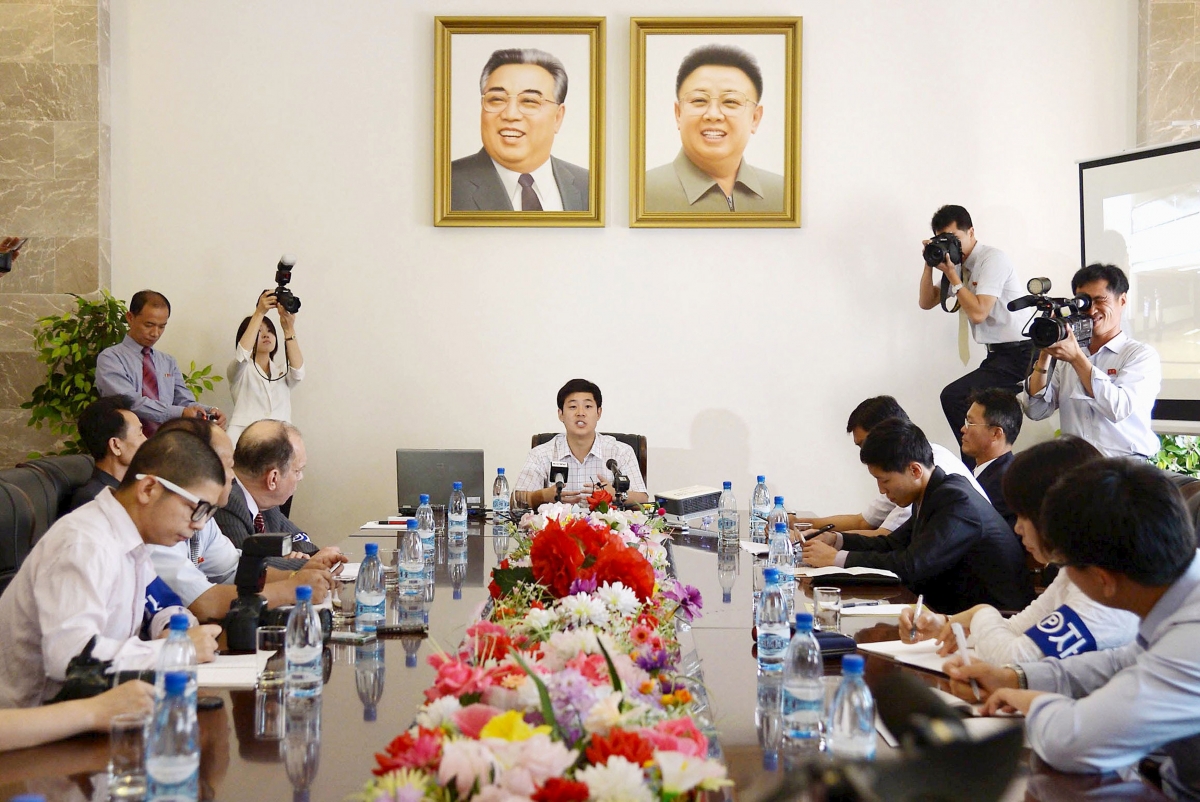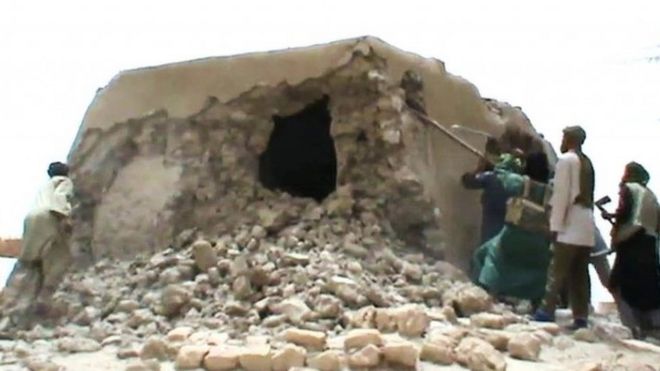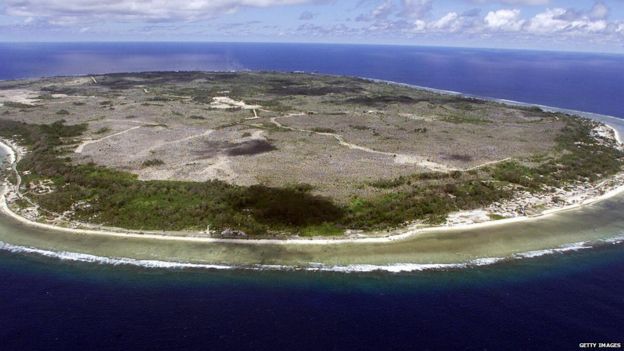North Korea Releases South Korean NYU Student After Six Month Detainment
By Christine Khamis
Impunity Watch Reporter, Asia
SEOUL, South Korea –
North Korea has released and deported South Korean student Joo Won-moon after detaining him for six months. Mr. Joo was caught crossing the North Korea-China border in April and was arrested for what North Korea called a serious violation of its laws. Upon Mr. Joo’s release, North Korea stated that it deported him as a humanitarian measure.

On Monday, Mr. Joo was handed over to South Korean officials at Panmunjom, a village on the border of North and South Korea. The South Korean government has stated that its National Intelligence Service will investigate Mr. Joo’s act of crossing into North Korea. Mr. Joo’s crossing into North Korea was a violation of South Korea’s national security law, which forbids unapproved travel to the North.
Mr. Joo is a permanent citizen of the United States and attends New York University. At the time of his detainment, Mr. Joo was taking a semester off from NYU and had traveled to North Korea after trying unsuccessfully to find employment in California.
Mr. Joo states that he was treated well by North Korean officials during his detainment. He recently appeared in front of North Korean state media and gave a statement saying that he had not been allowed to contact his family but wanted them to know that he was healthy. In his media appearance, Mr. Joo also acknowledged that he had entered the country illegally and read from a speech praising North Korea and its government.

In an interview with CNN in May, Mr. Joo stated that he had hoped to improve relations between North and South Korea with his act of crossing the China-North Korea border. Mr. Joo told CNN that he had hoped that some great event would happen and that it would hopefully have a positive effect on the relationship between North and South Korea, but that he was not sure at the time what great event his actions could lead to.
North Korea currently has three other South Koreans detained for crimes of espionage. South Korea states that the charges against them are “groundless”. While South Korea welcomes Mr. Joo’s release, the South Korean Unification Ministry has called for North Korea to free the three detained South Koreans as well.
North Korea is also holding a Korean-Canadian pastor who has confessed to crimes aimed at overthrowing the state, according to North Korea’s state media.
North and South Korea came to an agreement in August to improve ties after a period of heightened conflict. One of their attempts at improving ties is to allow families separated since the Korean War to temporarily reunite with their family members later this month.
For more information, please see:
Associated Press – North Korea Releases Detained South Korean Student – 5 October 2015
CNN – North Korea Releases NYU Student – 5 October 2015
International Business Times – North Korea to Release Detained New York University Student – 5 October 2015
NPR – North Korea Releases Detained NYU Student to South Korea – 5 October 2015
New York Times – N.Y.U. Student Detained in North Korea Is Released, South Says – 5 October 2015
Reuters – North Korea Frees South Korean Student Held Since April — 5 October 2015
Mausoleum Destruction in Timbuktu Leads to ICC Case
By Tyler Campbell
Impunity Watch Reporter, Africa
THE HAGUE, Netherlands – This September the International Criminal Court faced its first suspect charged with deliberately destroying religious or historical monuments. The suspect’s name is Ahmad Al Faqi Al Mahdi and he is charged in connection with the destruction of historic monuments in Timbuktu. This destruction took place in 2012 when Islamist Tuareg rebels took over the city and destroyed 14 of cities 16 historic mausoleums. These mausoleums had been labeled and protected as parts of a UNESCO World Heritage Site.

The ICC’s accusation against Mahdi reads that he committed a “direct attack against buildings dedicated to religion, education, art, science or charitable purposes, and historic monuments.” This charge has been grouped under the larger umbrella of war crimes. The ICC issued a warrant for Mahdi since he is considers a war criminal for these acts. The case was transferred from the Niger court, by the prosecuting attorney Fatou Bensouda, to the ICC after it issued a warrant on September 18.
Judge Cuno Tarfusser heard Mahdi’s opening statements and set the date for the first formal hearing on January 18, 2016. During this hearing Mahdi gave some basic information about himself saying, “My name is Ahmad Al Faqi Al Mahdi, and I am from the Tuareg tribe… I was born about 40 years ago. I am a graduated of the teacher’s institute in Timbuktu and I was a civil servant in the education department… beginning in 2011.” He also asked to be spoken to in Arabic but declined further statements until he consulted his lawyers.
Prosecution at the ICC has alleged that Mahadi was at the head of the Hesbah during the Islamist Tuareg rebels control of Timbuktu in 2012 through 2013. The Hesbah acted as a sort of morality police, enforcing the Islamic religion, during this time period and lead the attack on 10 of the protected historical monuments. The Hesbah targeted these buildings because they were seen as symbols of idolatry to the Islamic faith.
The leader of the UN Educational, Scientific and Cultural Organization (UNESCO), Irina Bokova, applauded the decision by the Niger prosecution to transfer this case to the ICC. The direct attack by the Tuareg rebels was seen as a crime against not only the people of Timbuktu but also the world. “The cultural heritage of Mali belongs to all humanity,” she said in a statement given after the transfer. Since the attack, UNESCO has been busy helping the people of Timbuktu rebuild the 14 mausoleums that were destroyed during the occupation. The buildings can be rebuilt, but the thousands of ancient manuscripts that were burnt during the occupation, sadly, are lost forever.
For more information, please see:
BBC – Timbuktu mausoleum destruction suspect appears at ICC – 30 September 2015
Deutsche Welle – Islamist leader faces ICC over Timbuktu mausoleum destruction – 30 September 2015
AP – Suspect in destruction of Timbuktu mausoleums sent to ICC – 26 September 2015
Nauru Eases Detention Center Rules for Asylum Seekers
By Samuel Miller
Impunity Watch Reporter, North America and Oceania
MELBOURNE, Australia — Asylum seekers being held in a controversial center in the South Pacific are to be allowed to roam free, effectively ending their detention. All 600 people at the center on Nauru will be allowed to move around the tiny island nation; they will also have their outstanding applications for asylum processed within the next seven days.

The surprise decision also came two days before the Australian High Court was due to examine the legality of Australia’s role in the offshore detention.
Successive Australian governments have vowed to stop asylum seekers reaching the mainland. For example, the country has previously turned boats back to Indonesia when it could, and sending those it could not for detention in camps on Nauru and on Manus Island in impoverished Papua New Guinea.
Justice Minister David Adeang issued a statement regarding the recent developments on Nauru and Manus Island Monday,
“The start of detention-free processing is a landmark day for Nauru and represents an even more compassionate program, which was always the intention of our government,” said Mr. Adeang. Mr. Adeang also confirmed that the Australian authorities would “provide support with safety, security and law enforcement.”
Advocates have long criticized Australia’s policy to hold asylum seekers on outlying islands, where they face the risks of violence and long periods in difficult conditions with limited medical care. Last month, an Australian Senate Report found conditions on Nauru were not appropriate or safe for detainees, and urged the government to remove children from the center.
Hugh de Kretser, the executive director of the Human Rights Law Center in Melbourne, Australia, expressed sentiments of both cautious optimism and skepticism.
“It is a welcome development that will provide some relief to the 600 or so people being detained, but it doesn’t address the fundamental injustice of warehousing people on a tiny island nation.”
Mr. de Kretser went on to question the timing of the announcement, which came just days before a hearing at Australia’s High Court on a challenge to the country’s immigration policy filed by the law center.
“We don’t think it’s a coincidence that this announcement is happening three years after the reopening of the detention center and two days before the highest court is considering the lawfulness of offshore detention on Nauru.”
The legal challenge has been brought on behalf of a pregnant woman from Bangladesh who was taken to Australia from the detention center in Nauru for hospital treatment. More than 200 asylum seekers, including 50 children, are also seeking legal protection after being taken to Australia for medical care they could not receive in Nauru and Manus Island.
The harsh conditions at the camps, including reports of systemic child abuse, have been strongly criticized by the United Nations and human rights groups.
An independent U.N. investigator postponed an official visit to Australia last month, citing a lack of government cooperation and “unacceptable” legal restrictions.
For more information, please see:
BBC News — Nauru to end detention of asylum seekers – 5 October 2015
Reuters — Tiny Nauru throws gates open at Australian camp for asylum seekers – 5 October 2015
Sky News — Asylum Seekers Free To Leave Nauru Centre – 5 October 2015
WCPW Volume 10, Issue 15 – October 5, 2015
War Crimes Prosecution Watch is a bi-weekly e-newsletter that compiles official documents and articles from major news sources detailing and analyzing salient issues pertaining to the investigation and prosecution of war crimes throughout the world. To subscribe, please email warcrimeswatch@pilpg.org and type “subscribe” in the subject line.
Opinions expressed in the articles herein represent the views of their authors and are not necessarily those of the War Crimes Prosecution Watch staff, the Case Western Reserve University School of Law or Public International Law & Policy Group.
Contents
INTERNATIONAL CRIMINAL COURT
Central African Republic & UgandaDarfur, SudanDemocratic Republic of the Congo
- ICC–CPI: ICC Judge Declines to Reduce Thomas Lubanga Dyilos’s Sentence
- ICC–CPI: Bemba, Kilolo et al. Trial Opens at International Criminal Court
AFRICA
International Criminal Tribunal for Rwanda
- UN News Centre: Mali: UN hails war crimes trial for suspect in destruction of historic monuments
- The Hague Justice Portal: ICC: Ahmad Al Faqi Al Mahdi makes first appearance before the ICC
- UN News Centre: Fallout from Boko Haram violence fastest growing crisis in Africa, warns UN relief official
- UN News Centre: Lauding progress to date, UN official urges Malian parties to adhere to peace accord
EUROPE
Court of Bosnia & Herzegovina, War Crimes Chamber
- Court of Bosnia and Herzegovina: Mato Čondrić Acquitted of War Crimes Charges
- Court of Bosnia and Herzegovina: Indictment Confirmed in the Case v. Suad Ramić
International Criminal Tribunal for the Former Yugoslavia
Domestic Prosecutions In The Former Yugoslavia
- Balkan Transitional Justice: Bosnia Charges Nine Soldiers with Abusing Prisoners
- Balkan Transitional Justice: Kosovo Serb Leader Condemns ‘Unjust’ Detention
- Balkan Transitional Justice: Bosnian Serb Fighter Jailed for Village Killings
- Balkan Transitional Justice: Bosnian Court Eases Oric’s Travel Restrictions
- Balkan Transitional Justice: Former HVO Fighter Charged With War Crimes
MIDDLE EAST AND ASIA
Extraordinary Chambers in the Courts of Cambodia
- The Diplomat: Evidence Mounts Over Khmer Rouge Genocide of Muslims and Vietnamese
- The Cambodia Daily: Judges: Arrest Would Humiliate Meas Muth
- AFP: France Opens War Crimes Inquiry Against Assad Regime
- NBC News: U.N. Chief: Refer Syria War to International Criminal Court
- Bloomberg View: Russia Risks Being Prosecuted for Syria’s War Crimes
Islamic State of Iraq and the Levant
- The New York Times: ISIS Defectors Reveal Disillusionment
- The New York Times: Plea Talks Taking Place in Chicago Islamic State Case
- The Forum: Feds Nab Man at Queens Home for Allegedly Attempting to Join ISIS
- The New York Times: Thousands Enter Syria to Join ISIS Despite Global Efforts
- NBC Chicago: Bosnian Immigrant Pleads Guilty to Role in ISIS Plot: Two Illinois men will appear in a Chicago federal courtroom as they are accused of helping terrorist organizations.
- The Daily Beast: Generation ISIS: The Western Millennials Stocking the Terror Army
- The Wall Street Journal: Islamic State Claims Killing of Aid Worker in Bangladesh
- The New York Times: U.N. Adds Four British Members of ISIS to Sanctions List
- NDTV: Singapore Detains 2 Men Planning to Join Islamic State: Government
- Naharnet Newsdesk: STL: Partial Loss for the Prosecution and Partial Victory for Jadeed, Khayat
- Beirut Business Report: Special Tribunal for Lebanon find Journalist Guilty of Contempt
- The Daily Star: STL Reiterates Seriousness of Charge Against Khayat
- The New York Times: Lebanon: TV Executive is Fined in Case Tied to Hariri Tribunal
- Yahoo News: Prosecutor to Appeal TV Channel’s Acquittal in Hariri Case
- The Daily Star: Abu Adass Acquaintance Testifies to STL
NORTH AND SOUTH AMERICA
- The Washington Times: Illegal Immigrant Detention Centers Rife With Abuses, U.S. Civil Rights Commission Report Finds
- The New York Times: U.S. Soldiers Told to Ignore Sexual Abuse of Boys by Afghan Allies
- Al Jazeera America: US Accepts UN Advice on Police Violence, Racism; Advocates Call For Action
- Reuters: U.S. Court to Revisit Guantanamo Detainee’s Conspiracy Conviction
- The Washington Post: Iran’s President Blames U.S. For Middle East Violence
- U.S. News & World Report: US Military Commanders Favor Keeping Troops in Afghanistan Beyond 2016
TOPICS
- The New York Times: Hungary Accuses Migrant Protesters of Terrorism for Clashing With Police
- The Chicago Tribune: Lawyer says Bolingbrook Teen in Plea Negotiations in Terrorism Case
- Fox News: Circuit Court Remands Terrorism Case on Grounds FBI Withheld Info of al-Awlaki Investigation
- Time: Embassies Warn of Possible Terrorist Attacks Targeting Westerners in Bangladesh
- U.S. News: Russia Urges Coordinated Terrorism Fight with US, Others as its Syria Airstrikes Begin
- UN News: Terrorism and Climate Change Greatest Threats to Humanity, Bangladeshi Leader Tells UN Assembly
- All Africa: Somalia: Trial Against Alleged Somali Pirate Kingpin Begins
- Horseed Media: Somalia Wants Repatriation of ‘Pirate’ Prisoners in Kenya Jails
- Hellenic Shipping News: SE Asia Piracy: criminal networks, corporate collusion and corruption
- Trinidad Daily Express: Pirate Attack: Fisherman Killed off North Coast
- The Guardian: South Sudan: Women And Girls Raped as ‘Wages’ for Government-allied Fighters
- Daily Mail: Yazidi Sex Slave Claims She Was Raped by ‘White American ISIS Jihadi’ in Syria
- Balkan Insight: ‘20,000 Women Sexually Assaulted’ During Bosnian War
- UN News Centre: Fallout from Boko Haram Violence Fastest Growing Crisis in Africa, Warns UN Relief Official
- BBC: MSPs Approve Human Trafficking Law
REPORTS
- The Indian Panorama: UN Seeks Special Court On Sri Lankan War Crimes
- Memo: Middle East Monitor: UN: War in Syria Will Ignite New Wars
- UN News Centre: Mali: UN Hails War Crimes Trial for Suspect in Destruction of Historic Monuments
- Reuters: U.N. Rights Boss Urges Sri Lanka to Probe Secret Jails, Missing People
WORTH READING
- Darryl Li: Jihad in a World of Sovereigns: Law, Violence, and Islam in the Bosnia Crisis
- Sean D. Murphy: The Identification of Customary International Law and Other Topics: The Sixty-Seventh Session of the International Law Commission
- David A. Koplow: You’re Gonna Need a Bigger Boat: Alternatives to the U.N. Security Council for Enforcing Nuclear Disarmament and Human Rights